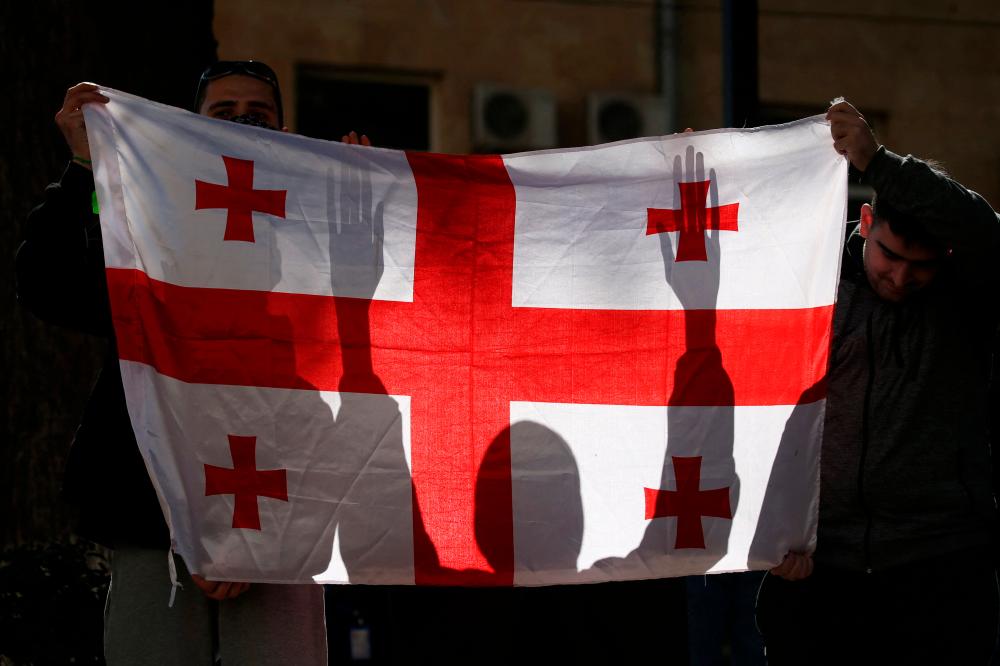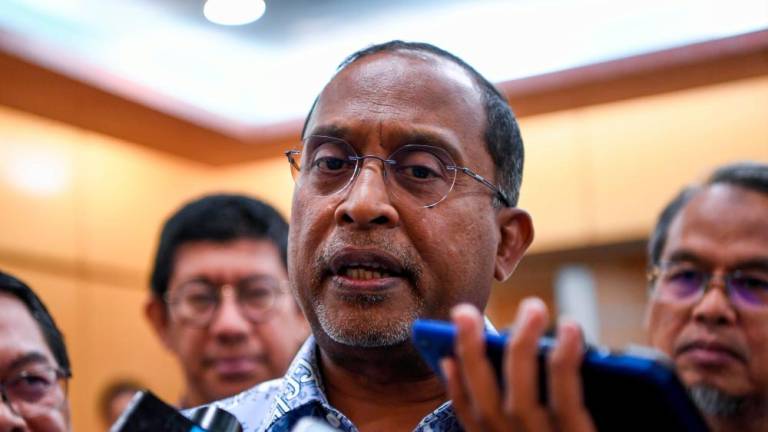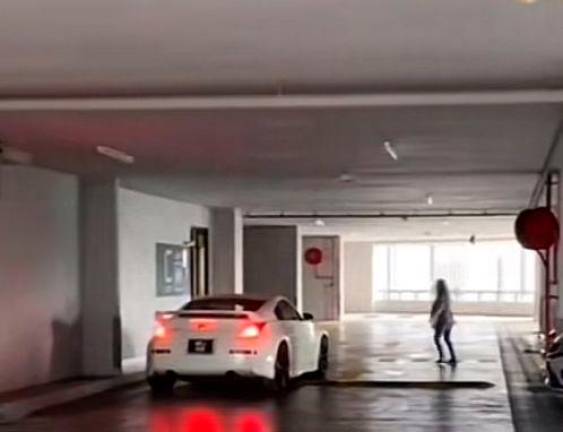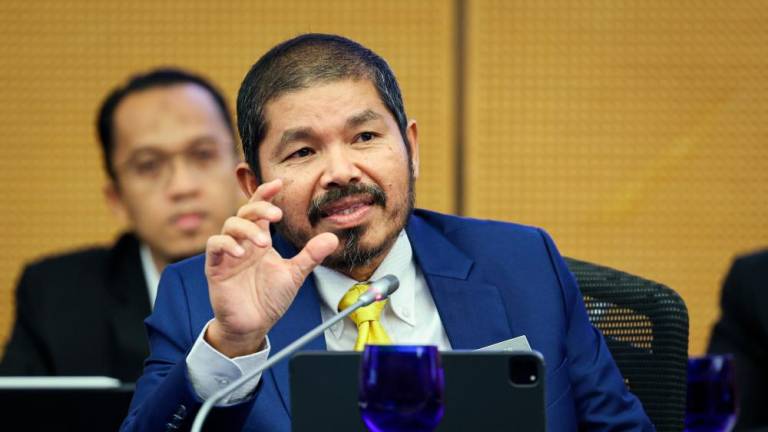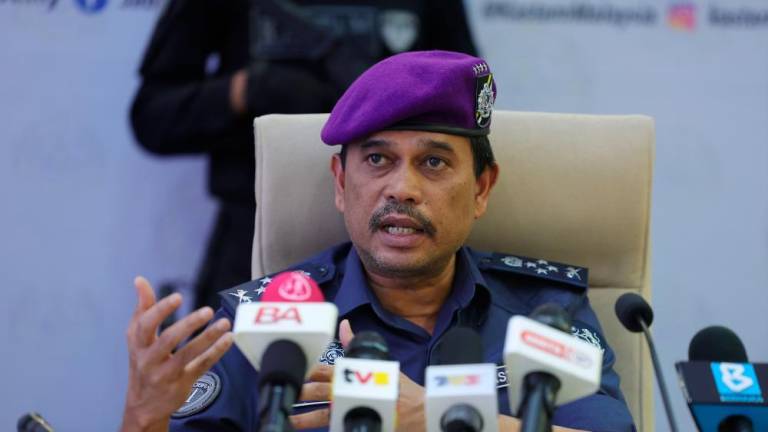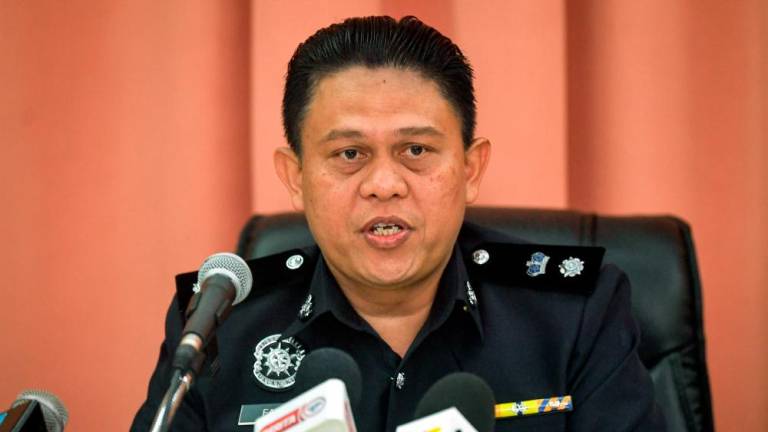TBILISI: Moscow on Friday accused foreign countries of fomenting days of mass protests in Georgia, likening them to an attempted coup designed to sow tension on Russia's borders.
Hundreds of Georgians rallied for a fourth day outside parliament, as lawmakers dropped controversial “foreign agent” legislation that triggered violent clashes between police and protesters earlier this week.
The days-long demonstrations point to turmoil over the future in Georgia, which aims to join the EU and NATO, much to the frustration of Moscow, which invaded in 2008 and recognised two separatist territories in the north of the country.
“There is no doubt that the law on the registration of non-governmental organisations... was used as an excuse to start, generally speaking, an attempt to change the government by force,“ Lavrov said in comments carried by Russian news agencies.
The protests, he added, “are of course being orchestrated from abroad” and with the aim of creating “an irritant on the borders of Russia”.
The Kremlin criticised remarks from Georgia’s president delivered from the United States and accused a third-party of stoking “anti-Russian” sentiment in the Black Sea state.
“We see where the president of Georgia is addressing her people from,“ Kremlin spokesman Dmitry Peskov told reporters.
'Agents of foreign influence'
But the mood was festive outside parliament in the capital Tbilisi where throngs of Georgians blew whistles, waved their red and white flag and held signs that read: “We are Europe”.
Georgian lawmakers had voted down the bill in second reading after just one MP out of 36 backed the bill that critics had likened to Russian laws used to pressure civil society.
“This is a victory. We won thanks to our unity,“ said 21-year-old student Irina Shurgaia, demonstrating outside parliament.
“The whole world saw that Georgians are united in their resolve to be part of the European family,“ she told AFP.
Georgia applied for EU membership together with Ukraine and Moldova days after Russia invaded Ukraine in February 2022.
EU leaders granted formal candidate status to Kyiv and Chisinau last June but said Tbilisi must implement reforms first.
The chairman of the ruling Georgian Dream party chairman, Irakli Kobakhidze doubled down on the motivation behind the bill even after lawmakers rejected it.
“Being an agent is shameful no matter whose agent you are,“ he told journalists, calling Georgian NGOs “agents of foreign influence.”
'European path'
His party buckled under pressure from protesters on Thursday, announcing it would drop the bill after police used tear gas and water cannon against Georgians who took to the streets to voice outrage over the planned bill.
But opposition parties said their protests would continue anyway, saying there were no guarantees “that Georgia is firmly on a pro-Western course.”
President Salome Zurabishvili sent a message of support to the protesters congratulating them on their “first victory.”
“There is distrust towards the government as we pursue our European path,“ she said late Thursday in a televised address from New York.
The Kremlin said Moscow considered the protests a domestic issue for Georgia and said the divisive law in Georgia mirrored US legislation, not Russian.
The European Union, France and the United States welcomed the Georgian government's dropping of the bill and the bloc called on the government to implement further reforms to gain candidate status.
Georgian authorities have faced mounting international criticism over a perceived backsliding on democracy, seriously damaging Tbilisi's ties with Brussels.
But the ruling party says it is committed to Georgia's EU and NATO membership bid, enshrined in the constitution and supported -- according to opinion polls -- by 80 percent of the population. - AFP



